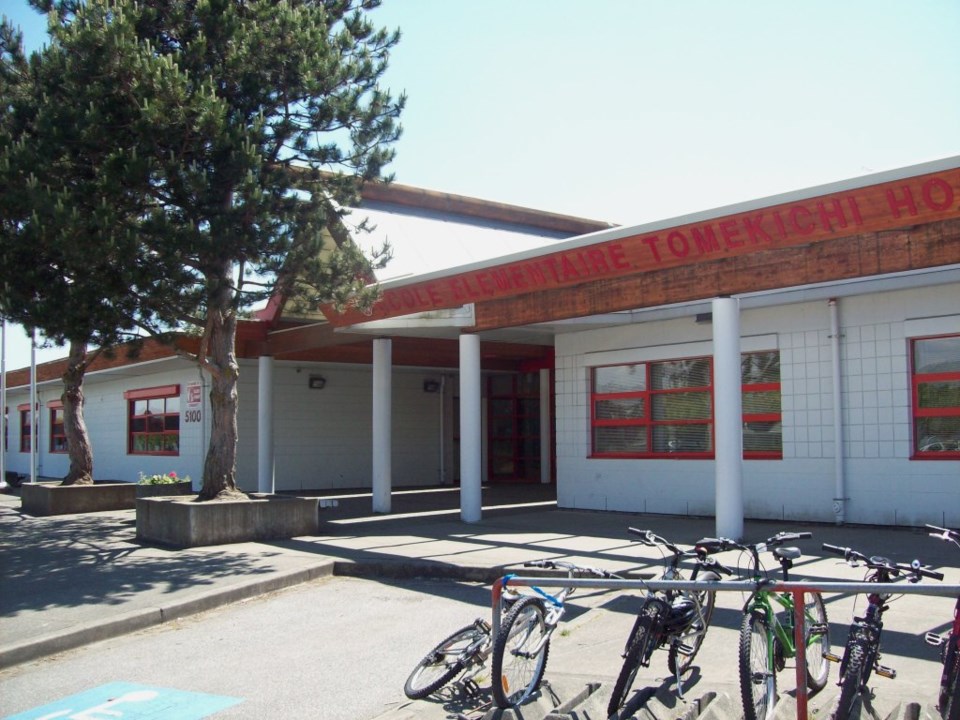One Richmond parent is asking the school board to ban juice boxes and plastic water bottles in the city’s schools.
Karina Reid, whose two children attend Tomekichi Homma elementary, wrote a letter to the board in early November after attending a Halloween event at the school.
“(This event) just really made me think, why are we doing this? You know, we’re selling water bottles and juice boxes to kids,” said Reid, adding that her seven-year-old son asked her why his school had plastic water bottles.
While getting rid of plastics is a good step for the environment, Reid said she is also motivated by health concerns associated with sugary drinks like juice.
“Not only just for the environment but from a health perspective, we really need to be role modelling, so we shouldn’t be having juice boxes in our schools,” said Reid.
This isn’t the first time the idea of banning juice boxes and water bottles in public schools has been raised.
A Toronto elementary school banned juice boxes from packed lunches in 2016 as part of Ontario’s litterless lunch program, which Reid would like to see implemented at Homma.
And, closer to home, an elementary school in Vancouver has had a litterless lunch policy since 2010. In Kelowna, a number of schools have introduced the same program.
Chocolate milk and juice were banned from lunches at public schools in New Brunswick last year as part of that province’s revamped nutrition policy.
Reid, who would ultimately like to see similar bans across the province, also sent a copy of her letter to the BCCPAC, which oversees the province’s parent advisory committees, and to Rob Fleming, B.C.’s education minister.
“It’s not just about my kids’ school, it’s about all kids’ schools,” said Reid.
Richmond School Board “is committed to environmental sustainability … (and) to the issue of reducing single-use plastics for a number of years,” according to David Sadler, the district’s spokesperson.
Sadler added that at least one water bottle refilling station has been installed at each school across the district (there are a total of 90 refilling stations spread across Richmond schools).
“To date, hundreds of thousands of single-use plastic containers have been diverted,” said Sadler.
The school board also adopted an environmental stewardship policy for the district in 1998, which states that it is a “fundamental responsibility” of the board to be environmentally sustainable.
Reid’s letter was discussed at the Nov. 13 school board meeting, where it was referred to the education committee.
The letter may also be referred to the Richmond Sustainability Advisory Committee, according to Sadler.



